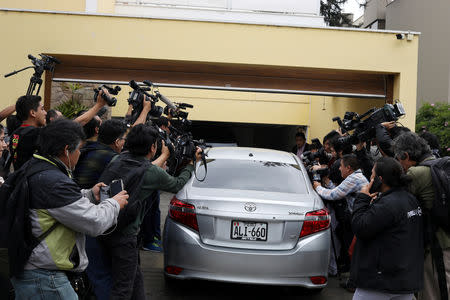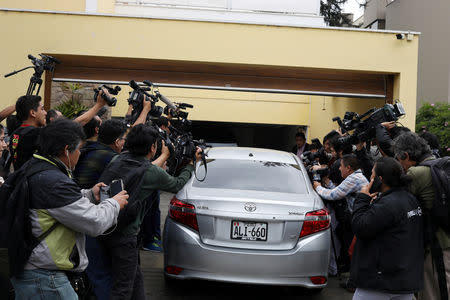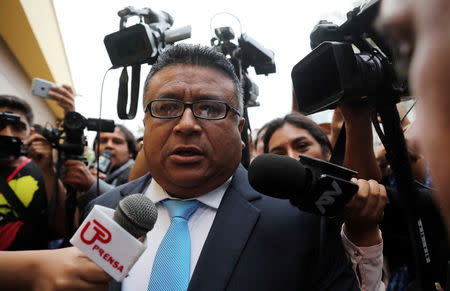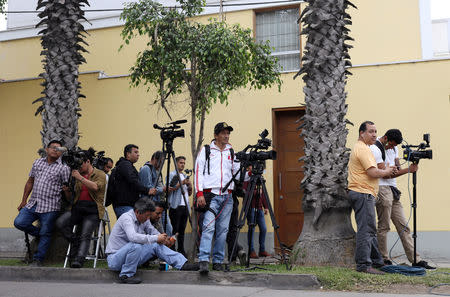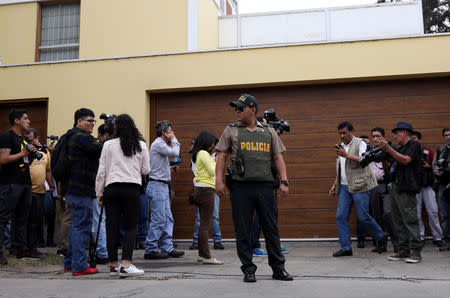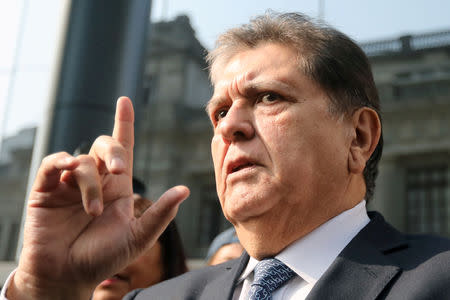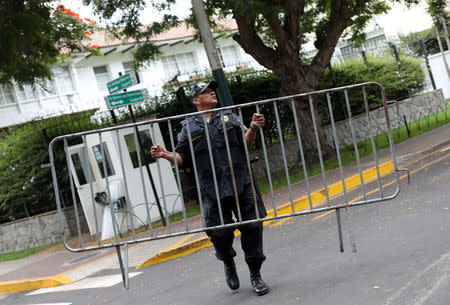Uruguay rejects former Peru president's asylum request
By Marco Aquino LIMA (Reuters) - Uruguay on Monday rejected a request for asylum from former Peruvian President Alan Garcia, who is currently under investigation in his home country on allegations of bribery tied to the sweeping Odebrecht corruption scandal. Uruguay's President Tabare Vazquez announced the decision in Montevideo, and Peru's Foreign Ministry said Garcia, 69, had left Uruguay's embassy in Lima after about two weeks there. "We have not granted the request for asylum because in Peru the country's three pillars of government function independently and autonomously, and especially the courts," Vazquez told reporters. Garcia requested asylum at Uruguay's embassy shortly after a judge last month barred him from leaving Peru for 18 months while under investigation for allegedly receiving bribes during the construction of an electric train in Lima by Brazilian company Odebrecht. Peru's president from 1985 to 1990 and again from 2006 to 2011, Garcia has maintained his innocence and has alleged he is a victim of political persecution. Peru's President Martin Vizcarra said the decision by Uruguay was welcome. "In Peru, no one is untouchable. Our democracy guarantees the separation of powers and due process," Vizcarra said on Twitter. After Uruguay's announcement, Garcia, who lives much of the year in Spain, returned to one of his homes in a residential district of Lima. "There is no proof that connects me with any crime and even less to Odebrecht or any of its projects," Garcia said in a statement. He said he would remain at his home in Peru and would cooperate with authorities. The prosecutor in the case, Jose Perez, has also accused Garcia of receiving $100,000 for taking part in a conference in Brazil, and said the money likely came from an Odebrecht fund used to pay bribes in several Latin American countries. The sweeping Odebrecht corruption scandal has implicated dozens of high-ranking officials across Latin America who have been accused of taking bribes in exchange for public works contracts. (Reporting by Marco Aquino; writing by Dave Sherwood; editing by Paul Simao and Dan Grebler)
